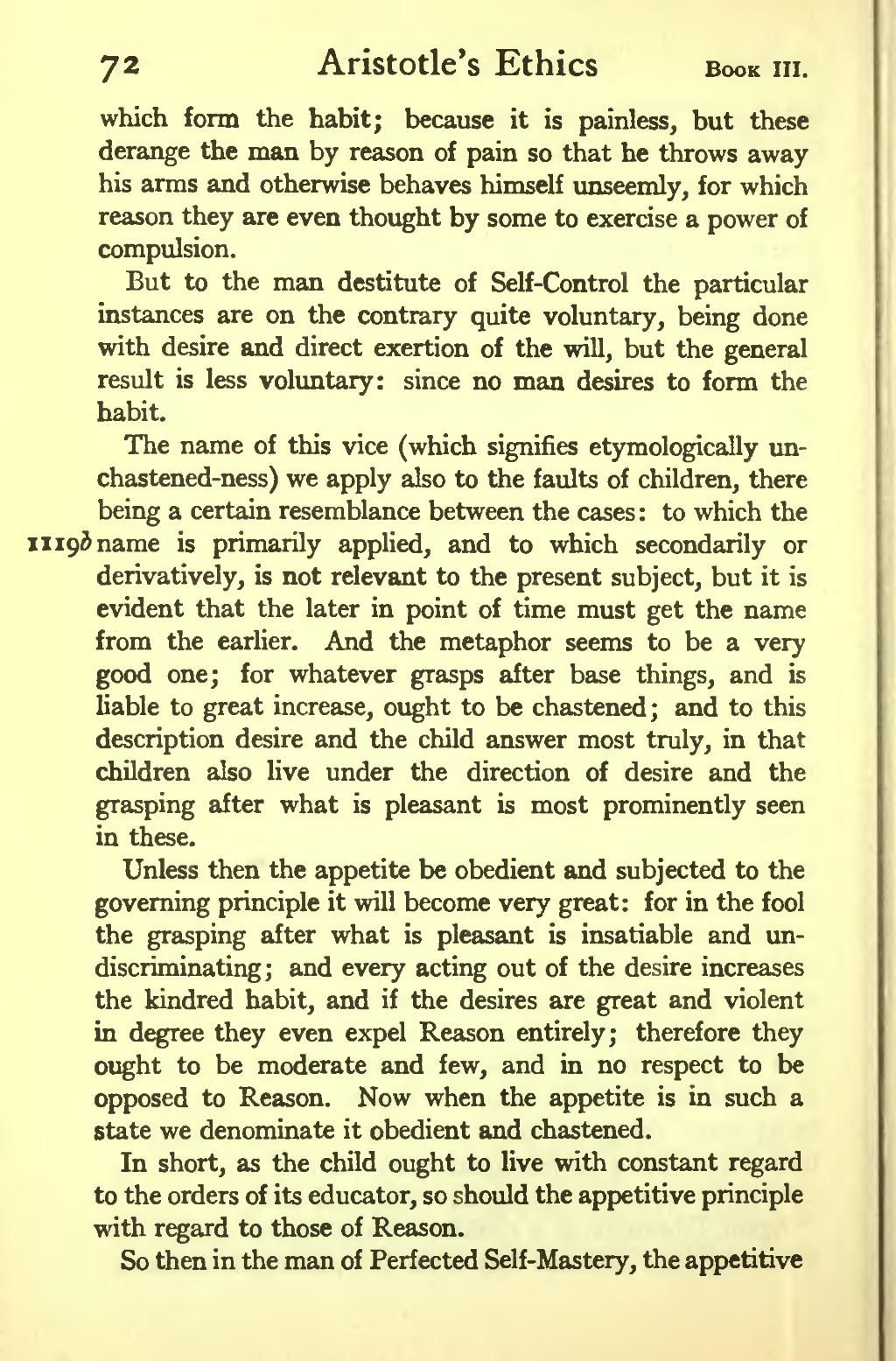which form the habit; because it is painless, but these derange the man by reason of pain so that he throws away his arms and otherwise behaves himself unseemly, for which reason they are even thought by some to exercise a power of compulsion.
But to the man destitute of Self-Control the particular instances are on the contrary quite voluntary, being done with desire and direct exertion of the will, but the general result is less voluntary: since no man desires to form the habit.
The name of this vice (which signifies etymologically unchastened-ness) we apply also to the faults of children, there being a certain resemblance between the cases: to which the 1119bname is primarily applied, and to which secondarily or derivatively, is not relevant to the present subject, but it is evident that the later in point of time must get the name from the earlier. And the metaphor seems to be a very good one; for whatever grasps after base things, and is liable to great increase, ought to be chastened; and to this description desire and the child answer most truly, in that children also live under the direction of desire and the grasping after what is pleasant is most prominently seen in these.
Unless then the appetite be obedient and subjected to the governing principle it will become very great: for in the fool the grasping after what is pleasant is insatiable and undiscriminating; and every acting out of the desire increases the kindred habit, and if the desires are great and violent in degree they even expel Reason entirely; therefore they ought to be moderate and few, and in no respect to be opposed to Reason. Now when the appetite is in such a state we denominate it obedient and chastened.
In short, as the child ought to live with constant regard to the orders of its educator, so should the appetitive principle with regard to those of Reason.
So then in the man of Perfected Self-Mastery, the appetitive